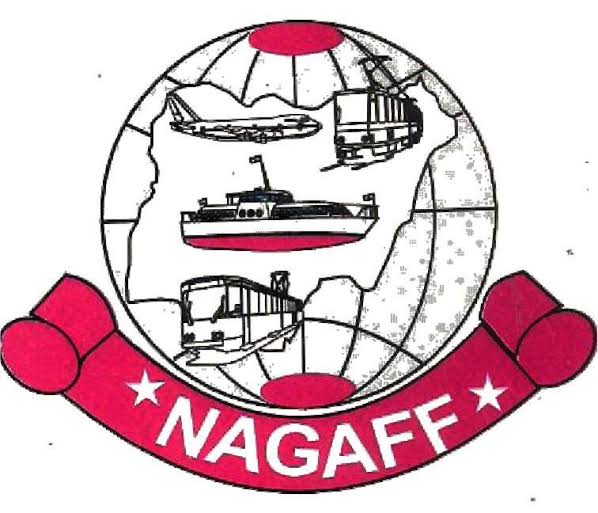… highlights inherent benefits

The Head of Technical Committee of the National Association of the Government Approved Freight Forwarders (NAGAFF), Mr. Patrick Ogbo, has called on the federal government to establish dry inland ports in Nigeria as strategic points of destination and origin for goods.
Attaching urgency to the call, Ogbo vividly recalled a discussion in 2019, in China, with senior officials from the Nigeria Maritime Administration and Safety Agency (NIMASA), the Central Bank of Nigeria (CBN), the Ministry of Finance, Nigeria Ports Authority (NPA) and National Agency for Food and Drug Administration and Control (NAFDAC), just before the onset of the COVID-19 pandemic.
According to him, the concept of dry inland ports is not only innovative but also timely, particularly as Nigeria seeks to enhance its trade infrastructure, reduce port congestion, and create opportunities for hinterland economic growth.
In an open letter to President Bola Tinubu alerting him on the necessity to cash in on this innovation, he stated that International precedents further underscore the significance of dry inland ports in optimising supply chains and boosting regional development.
He gave an instance of the Inland Port Greer in South Carolina, USA, which offers a compelling case of how inland ports can relieve congestion at coastal ports and facilitate more efficient cargo transport to interior regions.
“Linked to the Port of Charleston, this inland port has become a critical mode in South Carolina’s logistics network, extending its global trade reach far inland.
“As Rodrigue, Slack, and Notteboom (2020) note, “inland ports serve as vital extensions of supply chains, improving both the accessibility and operational capacity of coastal ports by decentralising the storage and handling of goods,” he explained.
Ogbo noted that this mirrors the logistical potential dry inland ports could offer Nigeria by distributing traffic from overstretched seaports like Apapa to interior regions.
The logistics Expert gave a more illustrative example with China’s Zhengzhou International Inland Port that has successfully connected inland provinces to global markets via an intricate rail and road network.
“The World Bank (2019) reports that the establishment of inland ports in China has drastically reduced both transportation costs and delivery times, particularly for industries located far from the coastal hubs” he quoted.
He further quoted that the report stated that the success of China’s inland port system shows that integrating hinterland regions into global trade networks can significantly boost regional development, emphasising the critical role such infrastructure plays in promoting economic diversification and reducing regional inequalities.
“Nigeria, with its vast hinterland regions, stands to benefit similarly by leveraging dry inland ports as gateways to international markets,” the Expert posited.
However, he said a critical question remains despite these clear benefits; who is responsible for the transportation of goods from the primary seaports to these inland dry ports? Should the responsibility lie with shipping agents, shipping companies, or the proprietors of the dry ports themselves?
Ogbo pointed out that international best practices suggest a collaborative approach. “In the European context, the Barcelona Inland Port in Spain offers a multi-stakeholder governance framework, where the burden of goods transfer is shared between shipping companies, port authorities, and private sector operators,” he cited.
He further quoted Bask et al. (2014) in highlighting the success of this model, stated that “effective management of inland ports requires a coordinated approach among multiple actors, ensuring the smooth movement of goods from seaports to inland facilities.”
He was of the opinion that this collaborative framework could serve as a model for Nigeria, where clear delineation of roles and responsibilities is essential to prevent bottlenecks in the transportation chain.
Ogbo who is a retired general manager from the NPA, moreover, said that utilising Nigeria’s existing transire procedure to transfer goods between seaports and inland dry ports might negate many of the logistical advantages such inland ports are designed to provide.
He further quoted Baird and Dubourg (2021) arguing that, “inflexible or outdated regulatory frameworks can transform what should be an efficient logistical process into a source of delay and inefficiency.”
He envisaged that the transire process, designed for clearing goods between Nigerian ports, may not accommodate the complex demands of modern inland port operations.
“Instead, adopting streamlined procedures that prioritise efficiency and minimise bureaucratic delays will be crucial to ensuring that dry inland ports in Nigeria can function as effective hubs of both origin and destination,” he recommended.
Summarily, he said the global success stories of inland ports illustrate the transformative potential they hold for Nigeria’s trade infrastructure.
“Yet, for these inland ports to realise their full potential, it is imperative to address the operational and regulatory challenges, particularly regarding the responsibility for transporting goods from coastal ports to the hinterland.
“A collaborative, multi-stakeholder approach and a reformed regulatory framework would be key to achieving this objective,” he recommended.
The NAGAFF Head of Technical Committee pointed at the need for the ongoing modernisation effort of the Nigeria customs service to see the need to coordinate this laudable concept of the Association to enhance logistical needs of trade development in Nigeria.
He lauded the Founder of NAGAFF, Dr. Boniface Aniebonam, for his commitment to trade facilitation, hoping that federal government embarks on this idea in order to benefit the nation
His words: “Indeed Dr. Aniebonam you have paid your dues and it’s my hope that the Federal Government of Nigeria should take up this great idea to leverage trade infrastructure and logistics in our international trade noting that the inherent advantage are limitless.
“This open letter is being forwarded to the Comptroller General of Customs, Transportation Minister, Secretary to the federal government, Finance, Chief of Staff to Mr. President, etc for their records under the agenda of renewed hope for Nigeria greatness.”

